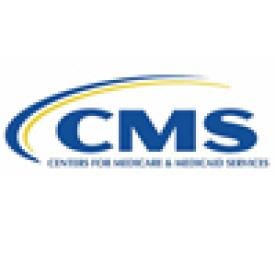The Centers for Medicare & Medicaid Services (CMS) simplified the process for clinicians and other providers to seek the Quality Payment Program (QPP) Hardship exception by releasing an online application on Aug. 2.
This process allows clinicians and other providers that bill under the Medicare Physician Fee Schedule to seek relief from electronic health record reporting requirements under the Merit-based Incentive Payment System (MIPS), if they have experienced a “qualifying hardship.” Individuals and entities that are MIPS Eligible Clinicians (i.e., are required to report data under MIPS) whose certified electronic health record technology (CEHRT) systems were unavailable or damaged for all or a portion of 2017 (including due to recent natural disasters) may want to consider applying for this exception.
The Hardship Exception Waives the MIPS Advancing Care Information Category
Physicians and certain other clinicians must participate in MIPS – created by the Medicare Access and CHIP Reauthorization Act (MACRA) – unless an “exclusion” applies. MIPS Eligible Clinicians are eligible for negative or positive performance-based payment adjustments to their Medicare Physician Fee Schedule payments, based on a MIPS score calculated using certain performance measures. For 2017, the Advancing Care Information (ACI) performance category accounts for 25 percent of the total MIPS score, which is then compared to benchmarks and ultimately applied in a manner that reduces or increases the Eligible Clinician’s Medicare payment.
CEHRT is required for participation in the ACI category, so Eligible Clinicians who experienced problems with their CEHRT systems in 2017 may fail to meet the requirements of the ACI category, which could result in a lowered MIPS score.
Where the failure was due to certain circumstances outside the control of clinicians or groups, an individual MIPS Eligible Clinician (or group of MIPS Eligible Clinicians) may submit a QPP Hardship Exception application, citing one of the following reasons for review and approval:
- Insufficient Internet Connectivity – located in an area without sufficient Internet access to comply with the ACI objective requiring internet connectivity, and faced insurmountable barriers to obtaining such internet connectivity
- Extreme and Uncontrollable Circumstances – extreme and uncontrollable circumstances in the form of (a) a natural disaster in which the EHR system was damaged or destroyed; (b) a practice or hospital closure; or (c) severe financial distress resulting in bankruptcy or debt restructuring
- Lack of Control over the availability of CEHRT – CEHRT was unavailable in one or more practice locations where more than 50 percent of the patient encounters occurred
If CMS approves the hardship exception, the ACI category is reduced from 25 percent to 0 percent, and the weight of the Quality category increases from 60 percent to 85 percent. This means that 85 percent of the MIPS score will be based on the Quality performance category.
How to Apply for the QPP Hardship Exception
A hardship exception can be submitted via the online application or by calling the QPP Service Center at 866-288-8292. Applications require several items of information, including:
- Taxpayer Identification Number (TIN) for group applications
- National Provider Identifier (NPI) for individual applications
- Contact information of individual submitting application
Distinguishing the Hardship Exception from Special Status Designation
The hardship exception is distinct from the CMS “Special Status” rules that also exempt some MIPS Eligible Clinicians from reporting obligations. The ACI category score for Special Status clinicians is automatically reweighted for the following types of clinicians:
- Hospital-based MIPS-eligible clinicians
- Physician assistants
- Nurse practitioners
- Clinical nurse specialists
- Certified registered nurse anesthetists
- Non-patient facing clinicians
Where reporting as a group, the group’s ACI score is automatically reweighted if all of the group’s MIPS Eligible Clinicians receive a hardship exception or fall into a Special Status category, or if the group is “non-patient facing” – meaning more than 75 percent of its clinicians have 100 or fewer patient-facing encounters
Final Thoughts
CMS has acknowledged the devastating impacts of Hurricanes Harvey and Irma, and noted it will continue to monitor how weather events are affecting health care providers. The agency has established a website that offers updates on efforts to address those impacts. CMS has also stated that it will be making QPP exception decisions regarding the effects of Hurricanes Harvey and Irma in the near future.
Clinicians and groups should carefully consider whether they qualify for a hardship exception. Given the effects of recent natural disasters, many Eligible Clinicians will likely wish to seek a hardship exception under MIPS for 2017 to avoid possible downward adjustments to Medicare payment.







 i
i


